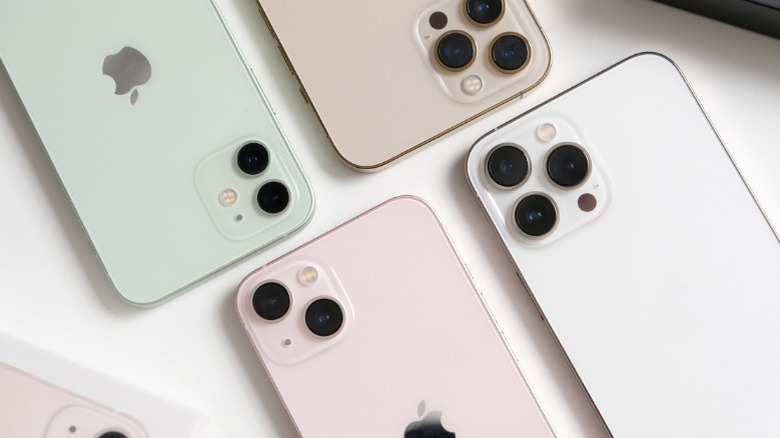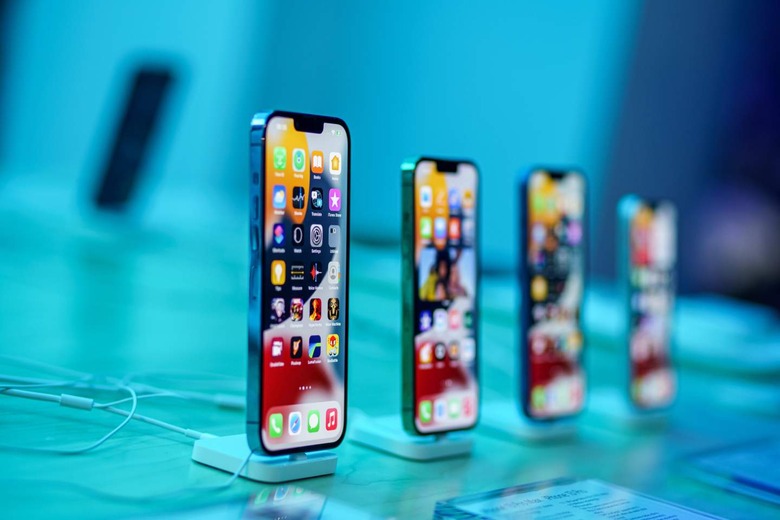

Why The Netherlands Just Filed A Class Action Lawsuit Against Apple
source link: https://www.slashgear.com/819113/why-the-netherlands-just-filed-a-class-action-lawsuit-against-apple/
Go to the source link to view the article. You can view the picture content, updated content and better typesetting reading experience. If the link is broken, please click the button below to view the snapshot at that time.

Why The Netherlands Just Filed A Class Action Lawsuit Against Apple

It looks like Apple has drawn the ire of a consumer rights group in the Netherlands because of its App Store policies. The non-profit Consumer Competition Claims Foundation is filing a class action lawsuit against Apple, alleging on its website that European consumers "have been overcharged 5 billion euros for their app and in-app purchases and should demand a refund." As with much of the negative attention Apple has been receiving lately, it seems that this lawsuit is centered on the fees Apple charges for purchases made through the App Store.
Apple charges a 30% cut on everything sold through the App Store, whether those are apps purchased upfront, in-app purchases that use the App Store's payment system, or even subscriptions that were started through the App Store. For instance, if someone signs up for Spotify via the iOS app, Apple takes a 30% cut of those monthly subscription fees (a cut that decreases to 15% after a user has been subscribed for a year). Up until recently, Apple forbade app developers from offering alternative payment methods within their apps, which is something that Epic Games ultimately took Apple to court over.
The description of this lawsuit on the Consumer Competition Claims Foundation's website is somewhat vague in that it doesn't really get into specifics. "By using anti-competitive practices, Apple has been able to charge excessively high prices and impose restrictive conditions," the website reads. "Apple excluded all competition and withheld choice for consumers on their App-store and in-app purchases."
Netherlands consumer group looking for a huge class action sum

In speaking to Bloomberg (via MacRumors), the foundation gets a little more specific. It says that it could net as much as 5.5 billion euros in damages for consumers who purchased apps or made in-app purchases using iPhones or iPads. Of course, that's assuming that the lawsuit is successful, as the Consumer Competition Claims Foundations seems to still be in the phase where it's recruiting people for the class-action lawsuit.
It sounds like the foundation is mostly focused on the commission Apple takes on each sale facilitated by the App Store. For most, that commission is 30%, which the foundation argues then causes developers to hike prices. While Apple has adopted some flexibility in the cut it takes – in 2020 it changed the commission to 15% for small-scale businesses and developers that make less than $1 million annually – developers selling apps and in-app purchases through the App Store are still subject to some kind of commission.
Apple's cut on App Store sales has drawn it plenty of criticism here on the other side of the Atlantic, as Epic and Apple are currently engaged in a lengthy legal battle over those fees and the inability for App Store developers to advertise other, external payment methods. While the initial lawsuit didn't go Epic's way in most regards, the company is currently going through the appeals process.
How Steve Jobs' iPhone Keynote Changed Everything

When Steve Jobs took the stage at Macworld in San Francisco, January 9, 2007, to introduce the first iPhone, no one could have imagined the impact that small device would have on Apple, the smartphone industry, and the world at large. Back then, the smartphone market was much different — and far smaller — than it is today.
In Q4 2006, only 18 million smartphones were shipped, with an additional 2.5 million wireless handhelds and 1.5 million traditional handheld devices (via Canalys). For comparison, more than 300 million smartphones were shipped in Q3 of 2021, alone. That means a total of only 22 million smart mobile devices were shipped in Q4. Even more telling, Canalys noted that this seemingly small number represented a 30% increase year-over-year.
In those early days of the smartphone market, Nokia was the company to beat, with BlackBerry, Motorola, Palm, and Sony Ericsson rounding out the top five (via AppleInsider). One thing that defined all of the major companies were phone designs that incorporated physical keyboards. In that market, Jobs and Apple saw an opportunity for revolutionary change.
How the iPhone impacted the industry
What immediately caught most people's attention was the touch screen interface (via History). The entire front of the iPhone was one large screen, completely devoid of a physical keyboard. Instead, the interface adjusted to the user, hiding or displaying the keyboard as needed. Despite its revolutionary features, many were not convinced the iPhone would gain traction.
In an interview with USA Today, Microsoft CEO Steve Ballmer said the following: "There's no chance that the iPhone is going to get any significant market share. No chance. It's a $500 subsidized item. They may make a lot of money. But if you actually take a look at the 1.3 billion phones that get sold, I'd prefer to have our software in 60% or 70% or 80% of them, than I would to have 2% or 3%, which is what Apple might get."
 Rokas Tenys/Shutterstock
Rokas Tenys/ShutterstockUnfortunately for other smartphone makers, their dismissiveness of iPhone's impact on the market was their own undoing. Nokia and BlackBerry's market share plummeted, as Investopedia points out, with both making major changes to their business models just to survive.
Most smartphones now mimic the features the iPhone pioneered. However, Digital Trends has noted that the market is largely divided between the iPhone and Google's Android operating system (OS), which debuted in September 2008 and borrowed heavily from iOS. Handheld GPS along with low to mid-range cameras and standalone MP3 players were completely upended, as the iPhone took on those roles in a single device.
How the iPhone impacted Apple
Not to be overlooked is the impact the iPhone had on Apple itself. Apple began as a computer maker, and nearly died as one (via Business Insider). Prior to Jobs' return to the company, it was teetering on the edge of bankruptcy.
As Business Insider noted, Jobs helped turn the company around with the original iMac, followed by the G3 Mac, the G4, and the iPod. Despite the company's success with those products, the iPhone propelled it to all new heights. Apple went from being a computer whose Mac OS was a distant second to Windows — that also made a successful music player — to a company that was a market leader in the smartphone industry.
Even after the rise of Android, which according to Statista currently has the lion's share of the global market, Apple continues to be a dominant force. The success of the iPhone also helped drive Apple to be the first U.S. company to ever be valued at $1 trillion (via CBS News).
How the iPhone impacted Jobs' legacy
Another major impact the iPhone had was on Steve Jobs himself, and the legacy he left behind. Jobs died four years after he introduced the iPhone at MacWorld, leaving behind a far greater legacy as a result of it.
Jobs had a conflicted history at Apple, co-founding the company with Steve Wozniak before eventually being ousted for his mercurial nature. He went to found NeXT, Inc. in an effort to duplicate his initial success with Apple. Ultimately, NeXT failed as a company, but it helped create an OS that would eventually serve as the foundation of the current macOS, after Apple purchased NeXT to bring Jobs back into the fold, as told by Business Insider. In the midst of his exile from Apple, Jobs also purchased Pixar. That company would go on to produce some of the most successful animated films in history.
Founding Apple, buying Pixar, and then turning Apple around and helping save it from bankruptcy and oblivion would have been accomplishment enough to cement Jobs as one of the 20th century's most successful entrepreneurs and CEOs. The success of the iPhone, however, helped catapult Jobs' legacy to the realm of legend, making him an icon that countless Silicon Valley entrepreneurs aspire to. No one could possibly have known how much the iPhone would change the world when it was first introduced but, in a true testament to how much it did change, it's tough to imagine a world without it.
Recommend
About Joyk
Aggregate valuable and interesting links.
Joyk means Joy of geeK